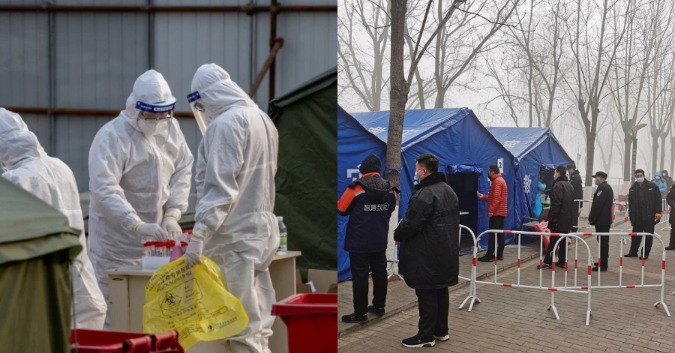As China steps up screening to ensure that no possible carrier of the latest coronavirus is missed in the midst of regional outbreaks and before the Lunar New Year holidays, several Chinese cities are using samples taken from the anus to better identify COVID-19 infections.
In Weinan, a town in northern Shaanxi province, a throat swab on a 52-year-old man returned negative results after the individual showed symptoms such as coughing and lack of appetite, a city official said on Wednesday, but he tested positive using nose and anal swabs.
The individual, who was placed as a near-contact of another carrier in a centralized medical observation facility earlier this month, was then registered as a COVID-19 patient, the official told a news conference.
Anal swabs need a 3 to 5 centimeter (1.2 to 2.0 inch) cotton swab to be placed into the anus and gently rotated.
Last week, a Beijing city official said that after an infection was identified, anal swabs were taken from over 1,000 teachers, workers, and students at a primary school in the city – their nose and throat swabs and serum samples were also collected for testing.
Last week, Li Tongzeng, a respiratory and infectious disease doctor in Beijing City, told state TV that extensive tests using anal swabs would prevent overlooked infections, as virus traces in bowel or anal swabs may remain detectable for a longer period than in samples taken from the upper respiratory tract. He added that such samples only necessarily apply to key classes, such as those in quarantine.
In a paper published last year, researchers at the Chinese University of Hong Kong (CUHK) said that stool testing might be more accurate than respiratory testing in detecting COVID-19 infections in children and infants because they bear a higher viral load in their stools than adults.
Source: Reuters









Leave a Comment